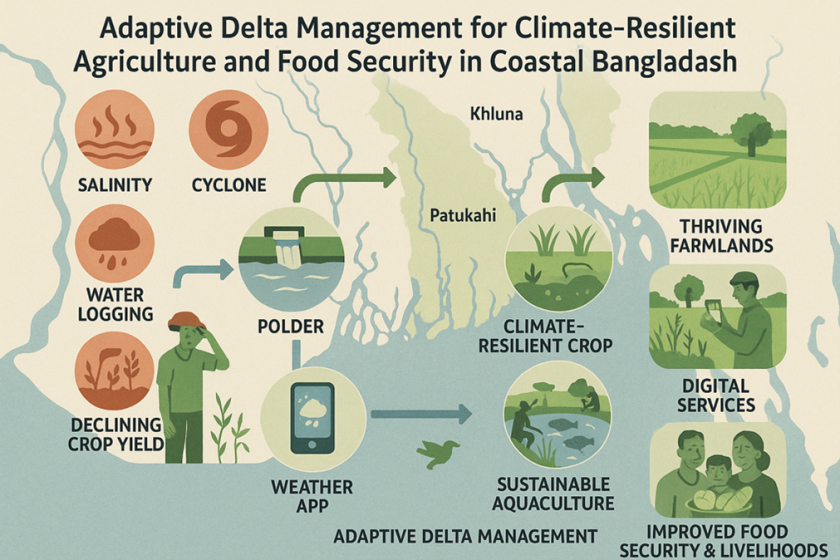
category_news
New project aims to improve climate-resilient farming in Bangladesh delta
A new project has been launched to help farmers in the coastal regions of Bangladesh adapt to climate change and improve food security. The initiative, titled “Adaptive delta management for climate resilient agriculture and food security in South-West and South-Central coastal Bangladesh” brings together researchers from Bangladesh and the Netherlands. It is funded through the Dutch Research Agenda (NWA) and will run for five years starting in September 2025, with a total budget of €955,000.
The main approach of the initiative lies in a Living Lab Approach, real life testing grounds where farmers, scientists, and policymakers work side-by side. Two permanent labs will be set up in the districts of Patuakhali and Khulna, with a third mobile lab facilitating collaboration across various regions and with national decision-makers.
The project aims to find practical solutions to key questions: How can farmers adapt their agricultural practices in areas with high soil and water salinity? What long-term strategies and innovations are needed to secure their livelihoods in a changing climate? To achieve the overall goals, this project set four work packages (WPs). WP-1 will work for identifying adaptive-transition pathways and stakeholders’ engagement for science policy interface. WP-2 will deal with nature-based solution of soil and water salinity together with co-creation of salinity information services for the vulnerable farmers. WP-3 encompasses co-creation of hydro-climatic information services (DROP app). WP-4 involves data and project management and overall administration.

The project is led by Prof. Ektear Uddin from Patuakhali Science and Technology University (PSTU), and co-lead by Dr. Samuel Sutanto from WUR. Other partners include Khulna University (KU), Wageningen Environmental Research (WENR), and Department of Agricultural Extension Bangladesh. From ESC, Dr. Loc Huu Ho and Dr. Spyros Paparrizos are also involved.